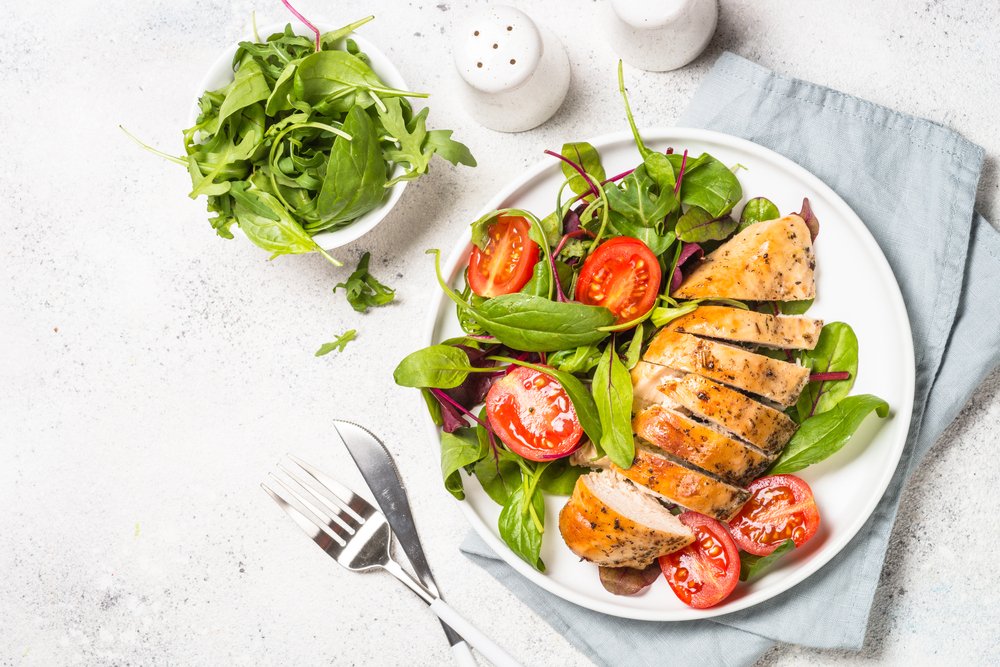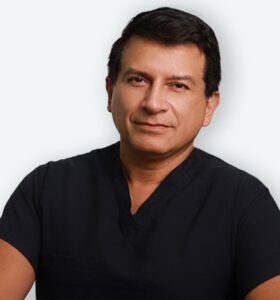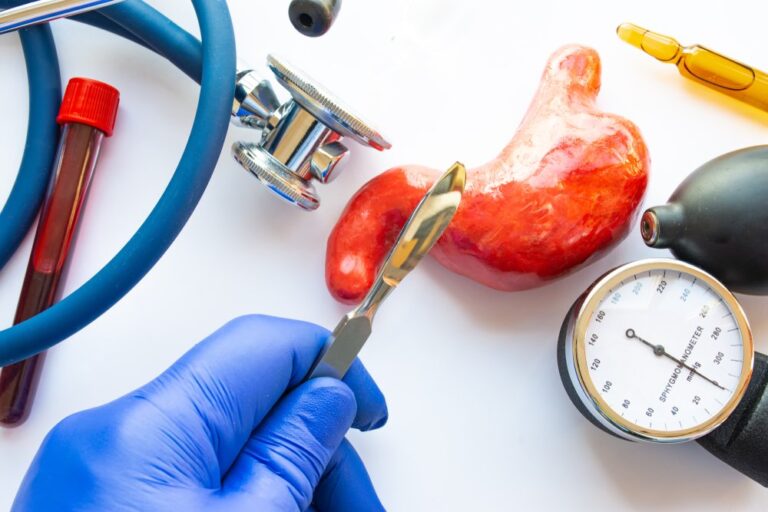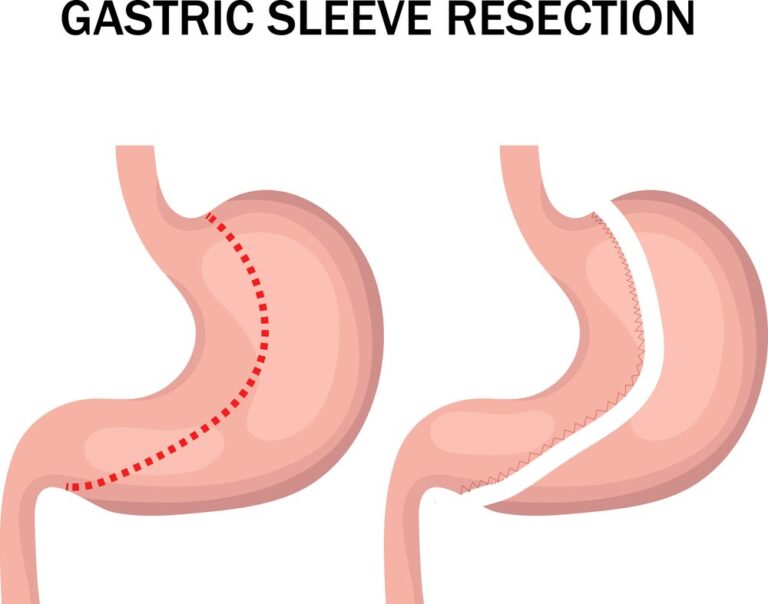What happens if you eat solid food after gastric sleeve? After undergoing gastric sleeve surgery, it is crucial to follow a specific diet plan, including a gradual progression from liquids to purees and eventually solid foods. Deviating from this dietary guideline and consuming solid food too soon after the surgery can have various consequences.
Get a $1000 Off on Gastric Sleeve in Miami
Understanding Gastric Sleeve Surgery and Dietary Guidelines
Gastric sleeve surgery, also known as sleeve gastrectomy, is a weight loss procedure that involves reducing the size of the stomach to promote weight loss. After undergoing this surgery, following specific dietary guidelines is crucial for successful outcomes. Here’s a breakdown of the procedure and the associated dietary guidelines:
Gastric Sleeve Surgery: During gastric sleeve surgery, a portion of the stomach is removed, creating a smaller, sleeve-shaped stomach. This new stomach restricts the amount of food you can eat, leading to reduced calorie intake and weight loss. The surgery also triggers hormonal changes that can help control hunger and promote satiety.

Dietary Guidelines: Following gastric sleeve surgery, you will receive specific dietary guidelines from your healthcare team. These guidelines typically involve a phased approach that gradually reintroduces different textures of food. The exact timeline and progression may vary depending on your surgeon’s recommendations, but here is a general outline:
- Liquid Diet: Immediately after surgery, you will start with a clear liquid diet. This includes water, broth, sugar-free gelatin, and clear protein drinks. The goal during this phase is to stay hydrated and provide your body with essential nutrients.
- Pureed and Soft Foods: After a few days or weeks, you will transition to pureed and soft foods. This includes foods like blended soups, pureed vegetables, soft fruits, and lean ground meats. The emphasis is on consuming foods with a smooth consistency that are easy to digest.
- Solid Foods: As you progress and tolerate pureed and soft foods well, you will gradually introduce solid foods. This phase includes lean proteins, vegetables, fruits, whole grains, and other nutritious options. It’s important to focus on nutrient-dense foods and practice portion control.
Key Dietary Considerations:
- Protein: Adequate protein intake is crucial for healing and maintaining muscle mass. Focus on incorporating lean sources of protein such as poultry, fish, tofu, eggs, and low-fat dairy into your diet.
- Hydration: Drink plenty of fluids between meals to stay hydrated. Avoid drinking liquids with meals to prevent filling your stomach too quickly and diluting digestive enzymes.
- Portion Control: With the smaller stomach size, it’s important to practice portion control and eat small, frequent meals throughout the day. Listen to your body’s signals of fullness and stop eating when you feel satisfied.
- Nutritional Supplements: Your healthcare team may recommend vitamin and mineral supplements to ensure you meet your nutritional needs. These supplements help prevent deficiencies and support overall health.
Following the prescribed dietary guidelines is crucial to support healing, promote weight loss, and prevent complications after gastric sleeve surgery.
Post-Surgery Dietary Guidelines and Phases
After undergoing gastric sleeve surgery, following proper dietary guidelines is essential for a successful recovery and long-term weight loss. These guidelines typically involve a phased approach that gradually introduces different textures of food. Here’s an overview of the post-surgery dietary guidelines and phases:
Phase 1: Clear Liquid Diet (Days 1-2)
- Clear liquids only, such as water, broth, unsweetened herbal tea, and sugar-free gelatin.
- Aim to stay hydrated and consume small amounts frequently.
- Avoid carbonated drinks, caffeine, sugary beverages, and high-calorie liquids.
Phase 2: Full Liquid Diet (Days 3-14)
- Include clear liquids from Phase 1, as well as additional full liquids.
- Full liquids can include skim milk, protein shakes, low-fat yogurt, cream soups, and strained or blended low-fiber fruits and vegetables.
- Introduce sugar-free, low-calorie protein shakes to ensure adequate protein intake.
- Avoid high-calorie liquids, fatty foods, carbonated drinks, and foods with chunks or solid pieces.
Phase 3: Pureed Foods (Weeks 2-4)
- Gradually transition to pureed or mashed foods with a smooth consistency.
- Include foods like pureed lean meats, soft cooked vegetables, blended soups, and sugar-free applesauce.
- Ensure that the texture is smooth and without any solid pieces.
- Chew food thoroughly and eat slowly to aid digestion and prevent discomfort.

Phase 4: Soft Foods (Weeks 4-6)
- Introduce soft foods that are easy to chew and swallow.
- Include foods like cooked vegetables, tender lean meats, canned fruits, and soft grains.
- Ensure that foods are well-cooked, tender, and easily breakable with a fork.
- Avoid tough meats, fibrous fruits, raw vegetables, and hard-to-digest foods.
Phase 5: Transition to Regular Diet (Weeks 6 and beyond)
- Gradually reintroduce a wider variety of foods into your diet.
- Focus on consuming lean proteins, vegetables, fruits, whole grains, and low-fat dairy products.
- Practice portion control and eat small, frequent meals throughout the day.
- Chew food thoroughly and eat slowly to prevent discomfort and aid digestion.
It’s important to note that the duration of each phase may vary depending on your surgeon’s recommendations and your individual progress. Always follow the specific guidelines provided by your healthcare team and consult with a registered dietitian for personalized advice. Remember to stay hydrated, prioritize protein intake, and make healthy food choices to support healing and achieve long-term weight loss success.
Potential Consequences of Eating Solid Food Too Soon
Eating solid food too soon after undergoing gastric sleeve surgery can have various consequences and may interfere with your recovery and weight loss progress. Here are some potential consequences of consuming solid food too early:
| Potential Consequences of Eating Solid Food Too Soon |
|---|
| 1. Digestive Discomfort |
| – Nausea, vomiting, bloating, abdominal pain |
| 2. Obstruction or Blockage |
| – Solid food particles getting stuck in the narrower part of the stomach |
| – Severe pain, difficulty swallowing |
| 3. Slower Healing and Recovery |
| – Disruption of the healing process |
| – Delayed overall recovery |
| 4. Impaired Weight Loss |
| – Solid foods are typically higher in calories |
| – Challenges in digestion may hinder weight loss progress |
It is important to follow the recommended dietary guidelines after gastric sleeve surgery to prevent these potential consequences and support a smooth recovery. Always consult with your healthcare provider for personalized guidance and support.
Stretching the Stomach Pouch and Decreased Satiety
After undergoing gastric sleeve surgery, it is important to maintain a healthy lifestyle and adhere to dietary guidelines to avoid stretching the stomach pouch and experiencing decreased satiety. Here’s what can happen if the stomach pouch stretches and satiety is reduced:
- Increased Food Intake: If the stomach pouch stretches, it can accommodate larger amounts of food. This can lead to an increased intake of calories, potentially hindering weight loss efforts and reversing the benefits of the surgery.
- Reduced Satiety: One of the key advantages of gastric sleeve surgery is the reduction in stomach size, which helps promote feelings of fullness and satiety with smaller portions. However, if the stomach pouch stretches, it can lose its ability to provide the same level of satiety. This can result in a decreased sense of fullness and a tendency to overeat.
- Weight Regain: Stretching the stomach pouch and experiencing decreased satiety can contribute to weight regain. This occurs when a person consumes larger quantities of food and exceeds their recommended calorie intake, leading to an imbalance between energy intake and expenditure.
- Lack of Long-Term Success: Maintaining the integrity of the stomach pouch and experiencing proper satiety are crucial for achieving long-term success after gastric sleeve surgery. If these aspects are compromised, it can be challenging to sustain weight loss and maintain a healthy lifestyle.

To prevent stretching the stomach pouch and ensure sustained satiety, it is important to follow these guidelines:
- Portion Control: Stick to the recommended portion sizes and avoid overeating. Pay attention to physical cues of fullness and stop eating when satisfied.
- Choose Nutrient-Dense Foods: Prioritize nutrient-dense foods that provide essential nutrients without excessive calories. Include lean proteins, fruits, vegetables, whole grains, and healthy fats in your diet.
- Avoid Grazing and Snacking: Limit grazing or frequent snacking between meals, as this can lead to excessive calorie intake and stretching of the stomach pouch.
- Stay Hydrated: Drink plenty of water throughout the day, but avoid drinking large amounts of fluids with meals, as it can fill the stomach quickly and reduce feelings of fullness.
- Regular Physical Activity: Engage in regular physical activity to support weight management, promote overall health, and enhance the effectiveness of the surgery.
By following these guidelines and making mindful choices, you can maintain the integrity of your stomach pouch, enhance satiety, and support long-term success after gastric sleeve surgery. If you have concerns or questions about your specific dietary needs, consult with a registered dietitian or your healthcare provider for personalized guidance.
Digestive Issues and Complications
While gastric sleeve surgery is generally considered safe and effective, there can be potential digestive issues and complications that may arise. It’s important to be aware of these possibilities and seek medical attention if any symptoms occur. Here are some digestive issues and complications that can occur after gastric sleeve surgery:
- Gastroesophageal Reflux Disease (GERD): GERD is a condition where stomach acid flows back into the esophagus, causing symptoms like heartburn, regurgitation, and chest pain. Gastric sleeve surgery can increase the risk of developing GERD, especially if there is an existing predisposition. Medications, dietary modifications, and lifestyle changes are typically used to manage GERD symptoms.
- Dumping Syndrome: Dumping syndrome occurs when food moves too quickly from the stomach to the small intestine. Symptoms may include nausea, vomiting, abdominal cramps, diarrhea, sweating, and lightheadedness. It is commonly triggered by consuming sugary or high-carbohydrate foods. Eating smaller, more frequent meals and avoiding high-sugar foods can help manage dumping syndrome.
- Stomal Stenosis: Stomal stenosis refers to the narrowing of the opening between the stomach pouch and the small intestine. It can lead to food intolerance, difficulty swallowing, nausea, and vomiting. If symptoms persist, medical intervention may be necessary, such as endoscopic dilation to widen the opening.
- Gallstones: Rapid weight loss after gastric sleeve surgery can increase the risk of developing gallstones. Gallstones may cause abdominal pain, bloating, nausea, and vomiting. In some cases, surgical removal of the gallbladder may be required.
- Nutritional Deficiencies: After gastric sleeve surgery, there is a risk of nutritional deficiencies due to reduced food intake and malabsorption. Common deficiencies include iron, vitamin B12, calcium, vitamin D, and folate. Regular monitoring of nutrient levels and supplementation as recommended by your healthcare provider can help prevent deficiencies.
- Infection and Leakage: In rare cases, infection or leakage at the surgical site can occur, leading to complications. Symptoms may include fever, severe abdominal pain, redness, swelling, and drainage at the incision site. Immediate medical attention is necessary if these symptoms are present.
It’s important to note that while these issues and complications can occur, they are not guaranteed outcomes of gastric sleeve surgery. Adhering to the post-operative guidelines, maintaining regular follow-up appointments with your healthcare team, and seeking prompt medical attention for any concerning symptoms can help mitigate the risks and ensure proper management of digestive issues and complications.
Signs and Symptoms of Eating Solid Food Prematurely
Consuming solid food too soon after gastric sleeve surgery can lead to complications and hinder the recovery process. It’s important to be aware of the signs and symptoms that may indicate eating solid food prematurely. Here are some common signs and symptoms to watch for:
- Digestive Discomfort: Eating solid food too early can cause digestive discomfort, including nausea, vomiting, bloating, and abdominal pain. These symptoms may indicate that your stomach is not ready to handle solid foods yet.
- Difficulty Swallowing: If you experience difficulty swallowing or a sensation of food getting stuck in your throat or chest, it could be a sign that you have consumed solid food too soon. This can be a result of the reduced size of the stomach pouch and the inability to accommodate solid food particles.
- Regurgitation: Regurgitation refers to the backward flow of undigested food or stomach acid into the mouth. If you notice regurgitation occurring after eating solid food, it may indicate that your stomach is not adequately prepared for solid foods.
- Feeling of Fullness: One of the main benefits of gastric sleeve surgery is the feeling of fullness with smaller portions of food. If you find that you no longer experience this sensation of fullness after consuming solid food, it could be a sign that your stomach pouch has stretched, reducing its effectiveness.
- Weight Gain or Plateau: Eating solid food too soon can potentially lead to weight gain or a plateau in your weight loss progress. If you notice a lack of weight loss or a reversal in weight loss after introducing solid food, it may be an indication that you need to revisit your dietary progression.
If you experience any of these signs or symptoms, it is important to consult with your healthcare provider. They can evaluate your situation, provide appropriate guidance, and recommend any necessary modifications to your diet to ensure a smooth recovery and optimize your weight loss outcomes. It’s crucial to follow the recommended dietary guidelines and progress through the different phases of your post-surgery diet as advised by your healthcare team.






